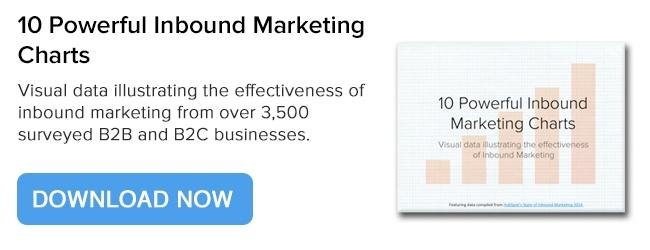Marketing Plans: If It's Not Documented, It Won't Work
By Jon Sooy on Wed, Nov 07, 2018 @ 01:00 PM

There is an old saying that goes, "Plan your work and work your plan." That's a truism and a clever phrase. But the deeper truth is that if you don't document your plan, it's not likely going to go well - if at all.

So, what does all that have to do with marketing?
Simply this: statistically speaking, the odds are quite high that if you don't document your marketing plan it's not going to happen. And we're not just talking about a high-level synopsis. Or a vague strategy or mission statement cobbled together by a committee.
How about this saying? "Plan your marketing, write it down, and work your marketing plan."
The Power of Documentation
Wondering how true that is? Well, here's some stats for you:
For example, our friends at HubSpot have noted that 89 percent of B2B marketers use content in their marketing, yet only 37 percent have documented strategies. And it's primarily those 89 percent that have the marked success with it.
And, according to Content Marketing Institute's latest B2B findings:
-
62% of the most successful content marketers have a documented strategy vs. 16% of the least successful.
-
72% of content marketers who increased their level of success over the past year credit their strategy as a major contributor.
Not quite convinced? Okay, one more shot - this is from John Rampton, founder of the online payments company Due, writing in Forbes:
Research has proven time and time again that no matter the size of your business you need to have a documented research strategy. In fact, businesses that have a documented content marketing strategy are:
-
More likely to consider themselves effective at content marketing.
-
Less challenged with every aspect of content marketing.
-
More effective in using content marketing tactics and social media channels.
-
Able to justify spending a higher percentage of their marketing budget on content marketing.
Bottom line is that, for a variety of really good reasons, documenting your marketing strategy plan will vastly improve your odds of marketing success. And, conversely, not doing so will almost certainly guarantee dismal results or an abandoning of your proposed plan.

Basics of Marketing Plan Documentation
Strategizing is fun. Dreaming up tactics and crunching numbers of leads and sales numbers is exciting. Writing down the nuts and bolts of how you're planning to make all that happen? Not so much.
But it doesn't have to be drudgery or even painful.
Because every business is unique and every business has different marketing aims and goals, it is not possible to to show you how to make a plan that is just right for you. And it would be misleading to show you a generic plan and simply add a disclaimer like "Actual results may vary."
However, there are some fairly universal basics that should be included in the marketing plan documentation process.
Here's a checklist for laying out the groundwork for you documentation efforts:

So, what are the main things you need to include in your marketing plan documentation? Here's a short list that covers the essentials for an effective strategy plan document:
1) Strategy Mission
Your overall mission guides your strategy and tactics. It will also help keep your team on track when executing your plan. Identify your purpose and your specific goals.
2) Target Audience Definition
You must know who you’re trying to reach with your marketing efforts, so need to research and create detailed audience personas or profiles.
3) Content Types
Now you can determine what types of content to create. HubSpot notes that,
“Depending on what your marketing funnel looks like, you’ll need a couple different types: content that educates and engages prospects at the top of the funnel and encourages them to learn more, as well as content for the bottom of the funnel that answers very specific questions and addresses objections to working with you.”
4) Content Creation
Creating content of your own takes time and effort. You will need to determine which processes, workflows, and resources will work for you, or consider outsourcing this to an agency or marketing professional.
5) Content Calendar
A content, or editorial calendar, will document the frequency, type, and channels for your content. By mapping out your target deadlines for different pieces you will keep your process on track and know how and when to coordinate this with other tactics being carried out.
6) Content Distribution
Your distribution strategy documents where and how you plan to distribute your content. It will show the type of content, frequency, and which processes and channels to be used
7) Metrics
Based on your strategy mission, you should identify the metrics used to measure your success with your plan. This allows you to match your metrics to your goals to determine how well your plan is working to achieve that mission.
Can You Do It? Yes, You Can!
Writing things down is nothing new. The power of writing down goals or plans is also not news, but the actual execution of it is something that needs to be reiterated. A lot.
Why? Because we are all human and most of us just don't enjoy the process. But it doesn't have be either onerous or intimidating. You have resources, you have help, and you have a plan. Documenting it is highly important and it's equally possible.
Doing it alone, however, is not necessarily easy or even recommended. It should be a team effort, even if the team is just two or three folks in your company. If you feel that a more professional approach needs to have some professional input, this is a perfect place for getting outside help.
As a business owner or marketer in a business you have mad skills. And that's great! But leveraging and capitalizing on the skills, insights, and experience of a professional agency makes a lot of sense when it come to a marketing campaign.
Optimizing Your Content Marketing Strategy
Implementing a content marketing strategy can boost traffic for your business, but achieving your content marketing objectives takes time. And it won't just happen with a few blog posts or some other great content you put out there once in a while.
People will need to consume your content for a while before they contact you. Yet, without your content compelling them to contact you, your goals may never be met.
The good news is that you don't have to figure out alone. In fact, one of the best investments you can make with your marketing budget is to partner with a solid firm like BroadVision Marketing.
Click this link to get your free Complimentary Inbound Marketing Session so you can make an informed decision, or call BroadVision Marketing at 707-799-1238.
You May Also Like
These Related Stories

13 Steps To Inbound Marketing Success: Sample Marketing Plan

7 Local Inbound Marketing Top Tips to Make Bookmarking Work for You

.png?width=302&height=75&name=BVM%20Logo%20-%20transparent%20(1).png)



No Comments Yet
Let us know what you think